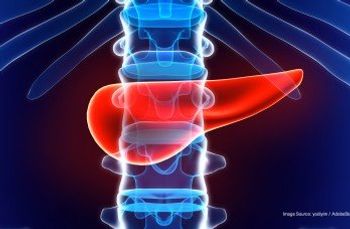
Nurse Quality of Life Important Component for Improved Patient Outcomes
According to the research, there are important components and factors missing from the scale commonly used to measure a clinician’s quality of life.
Quality of life (QOL) for nurses, especially an issue like compassion fatigue, is often overlooked as most oncology nurses’ work involves dealing with patients QOL, but it remains significant for clinicians to address their own QOL.
Recent research presented at the 46th Annual Oncology Nursing Society Annual Congress analyzed the Professional QOL (ProQOL) tool that is currently used to better understand nurses’ QOL, compared with the Theory of Oncology Nurses’ Professional QOL.
“[QOL is] really important in helping address patient outcomes, retain oncology nurses – or nurses in general – and improve and maintain our nursing model,” said study co-author Rebecca L. Boni, PhD, RN, ACCNS-AG, OCN, assistant professor at Oakland University, while presenting the findings.
The ProQOL Scale is a 30-question survey that includes 3 subscales: burnout, secondary traumatic stress, and compassion satisfaction. To date, there have been inconsistent findings about nurses’ professional QOL compared to ProQOL findings.
“When we look at the nursing professional quality of life, the literature almost always uses the ProQOL scale,” Boni said. “It was developed for social workers, but it’s used broadly in just about all caring professions: chaplains, teachers, physicians, nurses, social workers, [it’s] all over the board… The problem is, when I looked at the body of literature, there’s a lot of inconsistent findings, whether I look at just nurses or oncology nurses.”
The researchers surveyed 14 oncology nurses from 10 different health systems. Participants were asked to rate their own QOL on a scale of 1 through 10, and complete the ProQOL. Descriptive statistics, which were then used to compare ProQOL scores and qualitative results and self-ratings.
Among the ProQOL items, 26.7% were not related from categories that emerged from the qualitative data reported by the nurses. Additionally, more than half (8 out of 13) of the sub-categories from the study were not addressed within the ProQOL, including:
- Expecting growth, change, and challenge
- Knowing the demands
- Embracing complex relationships with time
- Pursuing full potential
- Harmonizing with personal QOL
- Establishing autonomy
- Feeling recognized
- Working cohesively
Ultimately, this study found that the Theory of Oncology Nurses’ Professional QOL is likely a more precise measure of oncology nurses’ QOL than ProQOL.
“If we can better measure professional quality of life and get more consistent research that we can trust, [we can] really develop interventions that can improve professional quality of life,” Boni said. “And from there, we can improve the wellbeing of nurses, improve our patient outcomes, and stabilize the nursing workforce – all of which we know are high priorities.”
Reference
Boni RL, Dingley C. Oncology Nurses’ Professional Quality of Life: An Analysis of Defining and Measuring Professional QOL. Presented at: the 46th Annual ONS Congress; April 22, 2021; virtual.
Newsletter
Stay up to date on recent advances in the multidisciplinary approach to cancer.












































